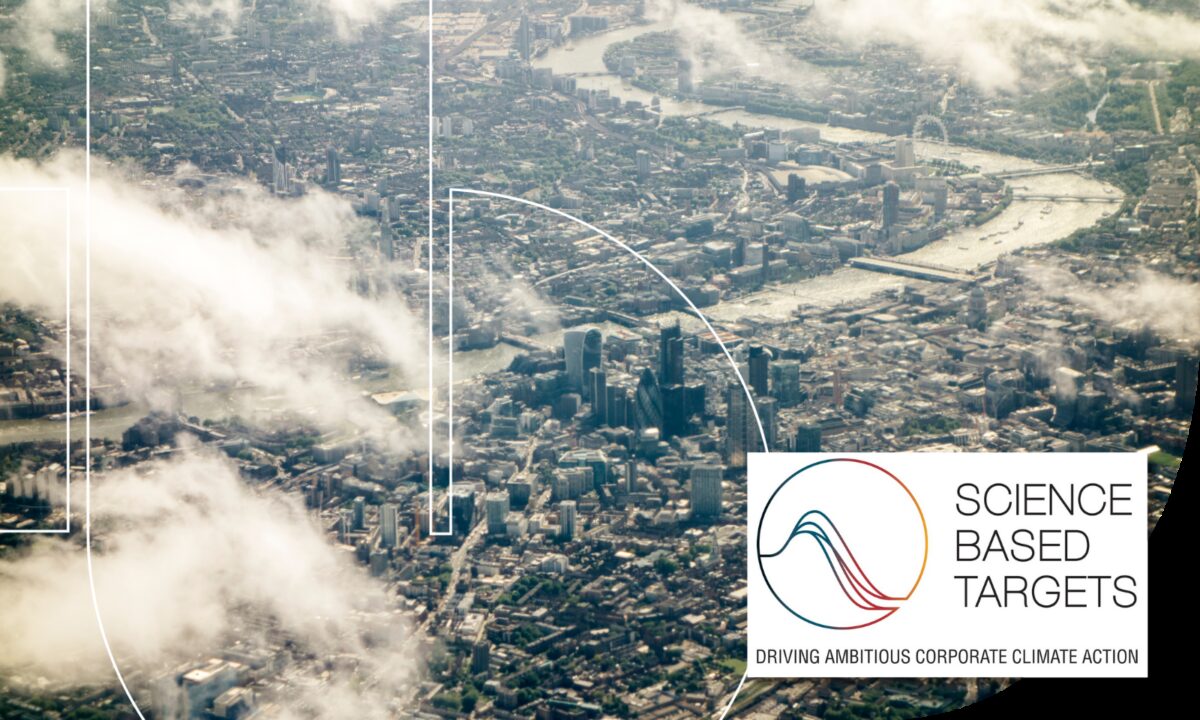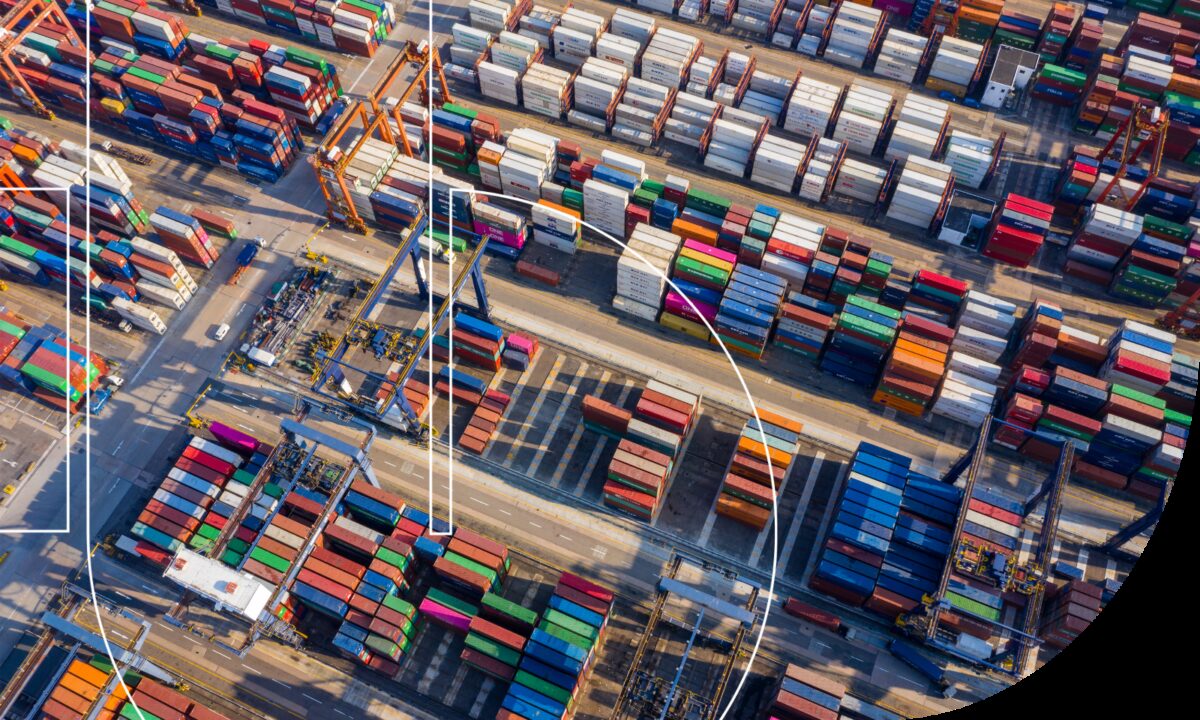The SBTi Corporate Net-Zero Standard 2.0: our expert view
I’m Katri, a Senior Technical Consultant and the Carbon Lead for Bioregional’s Sustainable Business team, which helps companies set and achieve sustainability targets. I’ve supported several companies through the SBTi target-setting process, including Kingfisher plc, The Portman Estate, and Mitchells & Butlers.
Having recently led Bioregional’s response to the SBTi’s public consultation, here are my 5 key takeaways.
01. What’s changed with the SBTi Net-Zero Standard in 2025?

The SBTi’s corporate net-zero standard represents the highest bar of business climate ambition. Now, the SBTi is developing the next iteration of the standard to align with the latest climate science and market feedback from businesses.
The actual changes won’t be finalised for some time, but key areas of focus include:
- Tracking progress on target achievement
- Data quality and assurance in the validation process
- Ensuring ambition for scope 1 and 2
- Enhancing scope 3 target setting to prioritise the most impactful activities
- Removal targets for residual emissions
- Acknowledgement for Beyond Value Chain Mitigation (BVCM)
A public consultation on the draft of the new standard took place from March to June 2025, which the Bioregional team contributed to.
The SBTi is now running a pilot phase with companies. You can submit an initial survey by 15th August if you’d like to take part.
We can expect the new standard to be phased in from 2027, as companies renew existing targets or set new ones.
02. Our feedback on the consultation

The key theme of our feedback was about balancing the need for credible reporting with ensuring companies can easily participate in meaningful climate action and be credited for doing so.
Validation process
Currently, the SBTi has a rigorous process for setting targets, but companies are not celebrated for achieving them or held accountable for not doing so.
To address this, we support the SBTi’s plan to implement an end-to-end validation cycle to improve credibility by evaluating companies’ progress at the end of the target period. We also support requiring companies to share climate transition plans to show how they will implement their targets. We have asked the SBTi for more clarity on how transition plans will be assessed and to clarify the consequences for companies achieving or not achieving their targets.
One area where we have concerns is the proposed need for assurance of baseline emissions in the target validation stage.
Firstly, this would make the process much more expensive, which would result in fewer companies setting targets. Many of the SMEs I work with that have a turnover of under £50m struggle to ringfence the £10-20K needed for a specialist to complete a carbon footprint. Adding assurance on top would more than double this cost, putting it out of reach for many smaller businesses.
Secondly, carbon footprinting using secondary data, while common practice, is inherently highly inaccurate, so getting the process assured isn’t going to solve the data quality problem anyway. Spend-based models, where emissions are estimated using industry averages, have especially large error margins. One company's recent study found Environmentally Extended Input-Output (EEIO) models overestimating emissions by up to 2,480%!
To get a more accurate emissions baseline, companies need to collect primary carbon data from their suppliers, which is the only true way to track progress on supply chain decarbonisation. But to ensure all primary data is assured would significantly increase the time and cost of the process.
However, we do support third-party validation at the target progress evaluation stage.
While data quality is important, we believe this should never be prioritised at the expense of action. Let’s focus on progress, not putting up barriers to getting started.
03. Scope 3

Value chain emissions make up around 90% of total corporate emissions and are notoriously challenging to address.
We support the proposals to focus on the most impactful sources of emissions in a company’s value chain and limit regular reporting to these areas.
The proposed changes will result in some companies having many scope 3 targets. We have asked for clarity on whether companies will be penalised if they achieve their headline scope 3 target but miss some of the individual targets.
We all know that global supply chains are incredibly complex and traceability can be a major challenge. In recognition of this, the draft includes more flexibility for companies to use proxies and mitigation methods, such as book-and-claim systems, for indirect emissions.
We are generally supportive of this but want to see clearer guidance on the appropriate use of these methods, and we support alignment between scopes 2 and 3, based on the upcoming GHG Protocol revisions on market-based instruments.
04. Carbon removals

Carbon removal of residual emissions is vital for achieving net zero.
While the focus must always be on reducing emissions as much as possible, the concept of net zero allows for the last (and most difficult to cut) part of a company’s carbon footprint to be neutralised with carbon removals elsewhere.
Now we are getting to a point where some leading companies are now tackling their last or ‘residual’ emissions.
We support the SBTi adding interim carbon removal targets for residual emissions and ask for more clarity on the guidelines for this.
Encouraging interim carbon removals along the way, rather than waiting until companies have cut everything except their residual emissions, will help develop the carbon removals market, which is currently not big enough or sophisticated enough to meet demand. From a climate science perspective, it’s also much better to remove and store carbon now rather than waiting decades to do so.
Durability is a key consideration when it comes to carbon removals, referring to how long the carbon is stored for and the risk of it being re-released into the atmosphere.
We recommend a practical and gradual transition approach with the required durability of removals increasing over time. This will enable companies to support the development of new technologies whilst contributing to existing solutions such as nature-based projects.
05. Beyond Value-Chain Mitigation

True leadership on climate means looking beyond your value chain to contribute to the wider climate transition.
Enabling companies to make claims and be recognised for their participation is vital to growing participation in Beyond Value-Chain Mitigation (BVCM). In fact, a 2024 SBTi report on BVCM found that a lack of credible claims to communicate their efforts was one of the top factors holding companies back.
We strongly support recognising companies that demonstrate leadership in corporate climate finance. This includes the purchase of high-quality carbon credits and contributing to high-quality climate mitigation projects.
However, it is crucial that BVCM is understood as an additional leadership activity, not a replacement for reducing value chain emissions.
Final thoughts
As the transition to net zero evolves, so does the need for updated standards and clearer guidance to help companies take action.
In general, I am very encouraged by the SBTi’s plans for the Corporate Net-Zero Standard 2.0. I hope to see refinement and clearer guidance in the areas outlined above, which will help the companies I work with to implement the standard.
Need help with your science-based targets? Our award-winning Sustainable Business team has 30 years of experience at the forefront of corporate sustainability and can support you every step of the way. Learn more about our net-zero services.
About the author: Katri Hastings is a Senior Technical Consultant (Carbon Lead) at Bioregional. She supports companies with carbon footprinting, science-based targets and net-zero roadmaps, bringing over a decade of experience in the sustainability sector and specialist carbon accounting expertise. Katri is the chair of the Carbon Offsetting and Neutrality working group in the Carbon Accounting Alliance, of which Bioregional is a founding member. She holds a bachelor's degree in Manufacturing and Mechanical Engineering from Warwick University and a master's degree in Sustainable Development in Practice from the University of the West of England.
We're here to help
- 30 years of experience at the forefront of corporate sustainability
- Award-winning, innovative solutions
- A trusted partner: as a charity, we reinvest our profits to create change
Discover our net-zero solutions
Learn more





